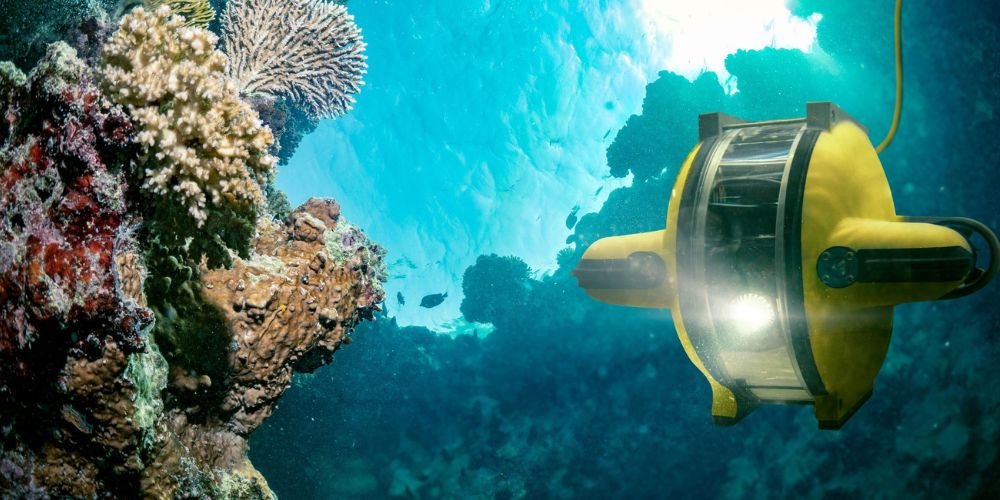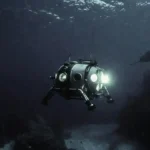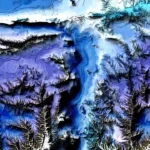In an age of technological advancement and scientific curiosity, ocean exploration remains a frontier that captivates our imagination. Beneath our oceans’ vast, mysterious expanse lies a world of intrigue, wonder, and untold discoveries. This article delves into the dynamic field of ocean exploration, its significance, its benefits, and its exciting prospects.
The Ocean’s Hidden Wonders
The oceans cover over 70% of our planet’s surface, yet we have barely scratched the surface of understanding their depths. Ocean exploration endeavors to uncover the secrets of the deep, revealing the rich biodiversity, geological wonders, and the profound impact the oceans have on our climate.
Biodiversity and Marine Life
The oceans house an astonishing array of life forms, many of which remain undiscovered. From the vibrant coral reefs teeming with colorful fish to the enigmatic depths where bioluminescent creatures thrive, ocean exploration sheds light on previously unknown species and their crucial roles in maintaining the marine ecosystem.
Exploring the oceans’ biodiversity expands our knowledge of Earth’s diverse life forms and offers insights into potential medical and biotechnological advancements. For instance, deep-sea organisms have produced enzymes and compounds with applications in pharmaceuticals and industry. The study of extremophiles, organisms that thrive in extreme conditions, holds promise for solving some of our most pressing scientific and medical challenges.
Geological Marvels and Seafloor Mapping
Beneath the waves, the ocean floor conceals geological phenomena that rival any found on land. Volcanic vents, hydrothermal vents, and underwater mountain ranges are among the awe-inspiring features waiting to be explored. Precise seafloor mapping reveals these wonders and helps us understand Earth’s tectonic processes.
Exploring these geological marvels provides critical insights into the Earth’s history and ongoing geological processes. For instance, hydrothermal vent ecosystems offer a glimpse into how life might exist on other planets, providing a valuable context for astrobiology. Additionally, understanding oceanic geology contributes to our knowledge of natural hazards like earthquakes and tsunamis, enabling better preparedness and disaster mitigation.
Advancing Ocean Exploration
Technological innovations have been pivotal in enabling the exploration of the deep ocean. Sophisticated submersibles, remotely operated vehicles (ROVs), and autonomous underwater vehicles (AUVs) have expanded our reach into the abyss, allowing scientists to conduct research and gather data from even the most extreme environments.
Deep-sea Submersibles and ROVs
Manned and unmanned submersibles take scientists to extreme ocean depths, providing a window into a world previously thought inaccessible. ROVs equipped with high-resolution cameras and sampling tools allow for precise exploration and sample collection from the deep sea.
These submersibles enable scientists to access the deep ocean and facilitate the collection of valuable data on ocean temperature, salinity, and chemistry. These measurements are critical for understanding climate change and its impact on the oceans, helping us develop strategies for mitigation and adaptation.
Satellite Technology and Oceanography
Satellite technology has revolutionized our ability to monitor and study the oceans from space. It provides valuable data on sea surface temperature currents and even helps track marine life migrations, aiding in the conservation and protection of ocean habitats.
Satellite-based oceanography enhances our understanding of global climate patterns, helping predict extreme weather events and providing early warnings for disasters like hurricanes and tsunamis. Moreover, it assists in monitoring illegal fishing activities and enforcing regulations to protect marine ecosystems and endangered species.
Ocean Exploration for a Sustainable Future
Understanding the oceans is not just a scientific pursuit; it is essential for the sustainability of our planet. Ocean exploration contributes to critical research on climate change, resource management, and the conservation of marine ecosystems, offering benefits that extend far beyond scientific discovery.
Climate Change and Ocean Health
The oceans play a vital role in regulating Earth’s climate by absorbing carbon dioxide and heat. Studying ocean currents, temperature changes, and their impact on marine life is crucial for assessing the effects of climate change and developing mitigation strategies.
Renewable Energy Source
In addition to climate regulation, oceans serve as a renewable energy source, such as offshore wind and wave energy. Exploring these resources contributes to a more sustainable energy future, reducing reliance on fossil fuels and mitigating climate change.
Sustainable Fisheries
Ocean exploration aids responsible fisheries management by providing insights into fish populations and migration patterns. This information supports sustainable harvesting practices, ensuring that future generations can continue to rely on the oceans as a source of food and livelihood.
Resource Management
Understanding the distribution and abundance of marine species helps implement conservation measures to protect endangered species and preserve biodiversity. It also assists in identifying marine protected areas where ecosystems can thrive undisturbed, fostering healthier oceans for future generations.
Conclusion
Ocean exploration is an awe-inspiring endeavor that continues to push the boundaries of human knowledge and technological capabilities. As we delve deeper into the ocean’s mysteries, we uncover the incredible biodiversity, geological wonders, and profound influence these waters have on our world.
With technology as our ally, ocean exploration promises to address climate change, sustain marine life, and unlock the secrets of our planet’s most enigmatic realm. It is a journey of discovery that beckons us to explore further for the benefit of science and our shared future on Earth.





